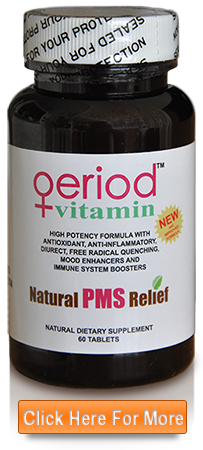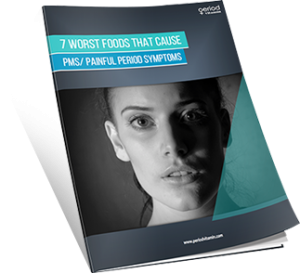 Is calcium good for PMS? Is a calcium deficiency related to PMS? What’s the role of calcium in PMS? Today’s article discusses how surprisingly, researchers could make big mistakes in designing their medical study – and yet still come up with a positive role of calcium in PMS treatment.
Is calcium good for PMS? Is a calcium deficiency related to PMS? What’s the role of calcium in PMS? Today’s article discusses how surprisingly, researchers could make big mistakes in designing their medical study – and yet still come up with a positive role of calcium in PMS treatment.
What Happened After the Calcium/PMS Literature Search
Professors and researchers at the University of Pennsylvania in the Department of Obstetrics and Gynecology and the Department of Psychiatry ran a literature search for different types of natural treatments of PMS (non-pharmacological ones) and found that out of all the ones reported, only calcium supplements were effective. Interestingly, they also stated that 40% of all women don’t respond to the PMS treatments the medical profession has to offer them.
This can only mean one thing – it’s not a medical problem; it’s most likely a nutritional problem. And since doctors don’t address nutritional concerns that often (in fact, it’s rare), then it makes sense that you’re looking for the answer to the question, is calcium good for PMS here on this website. This website is filled with solutions that do work – and it’s simply up to you to get to experimenting with them to find your answer.
What Happened in a Calcium/PMS Study of College Women
Here’s a very specific medical study that proves that a calcium supplement can benefit PMS.
The study took place at the ValiAsr Reproductive Health Research Center at Tehran University of Health Sciences. The researchers noted that during a woman’s menstrual cycle, there were fluctuations in many nutrients, especially calcium, and this could be a cause of PMS.
They set up a double-blind clinical trial to evaluate whether or not there would be any benefits of calcium for PMS. One group of young female college students received 500 mg calcium carbonate twice daily for 3 months while the other received a placebo. All the women in the study had to record the severity and intensity of PMS symptoms, including depression, appetite changes and fatigue.
Interestingly, the researchers forgot to look for cramps! This seems rather humorous, since one of the known benefits of calcium is to alleviate cramps! Surprisingly, they actually got the calcium dosage correct, as about 800 mg calcium daily should be the absolute minimum intake, and it should be greater if there’s a deficiency.
 Like in other medical studies where a nutritionist was not consulted, the researchers overlooked a few important things (although they got the how much calcium question correct). For example, calcium works in tandem with vitamin D, magnesium, phosphorus and zinc in the body, and none of these nutrients were ever looked at and evaluated. Also, the researchers don’t tell us how many of the women had a low calcium level to start with.
Like in other medical studies where a nutritionist was not consulted, the researchers overlooked a few important things (although they got the how much calcium question correct). For example, calcium works in tandem with vitamin D, magnesium, phosphorus and zinc in the body, and none of these nutrients were ever looked at and evaluated. Also, the researchers don’t tell us how many of the women had a low calcium level to start with.
Nevertheless, even though they goofed up on a lot of things in the study, the women had significant improvements in their PMS symptoms of fatigue, appetite changes, and depression.
Check your supplements right now to see whether or not you are taking calcium – especially if you have any PMS symptoms. There’s no point of suffering any longer if you can identify whether or not you are even getting enough calcium in the first place. If not, then you can imagine what needs to be done- you’re going to have to take a supplement.
One type of supplement to take could be a one a day period supplement that includes calcium, magnesium, zinc, vitamins, and even herbs. In nutrition, you need all the vitamins and minerals together to get the best results. Taking these supplements is a simple thing to do and doesn’t cost that much; most of all, you should know that it is nontoxic and safe.
Source:
Freeman, E.W. Therapeutic management of premenstrual syndrome. Expert Opinion Pharmacotherapy 2010 Dec; 11(17): 2879-89. http://www.ncbi.nlm.nih.gov/pubmed/20687778
Ghanbari, Z., Haghollahi, F., Shariat, M., Foroshani, A.R., and Ashrafi, M. Effects of calcium supplement therapy in women with premenstrual syndrome. Taiwan J Obstet Gynecol 2009 Jun; 48(2): 124-9. http://www.ncbi.nlm.nih.gov/pubmed/19574172


